Life
Sign up for our newsletter
We summarize the week's scientific breakthroughs every Thursday.
-
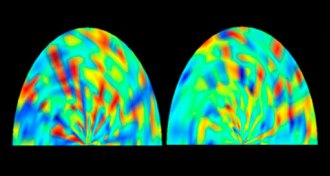 Neuroscience
NeuroscienceSense of smell is strictly personal, study suggests
A new test can identify individuals based on their sense of smell, and may hold information about a person’s genetic makeup as well.
-
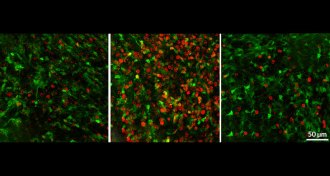 Neuroscience
NeuroscienceBrain’s adult stem cells born early
By tracing the lineages of adult stem cells in the mouse brain, scientists get a view of the cells’ early lives.
-
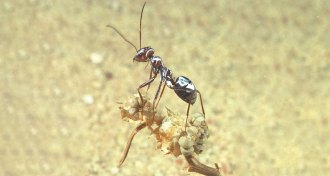 Animals
AnimalsSilver ant hairs reflect sunlight, keeping Sahara dweller cool
The shiny hairs of the Saharan silver ant simultaneously reflect sunlight and permit the release of body heat, keeping the insects just cool enough to scavenge in the extreme summer sun.
By Andrew Grant -
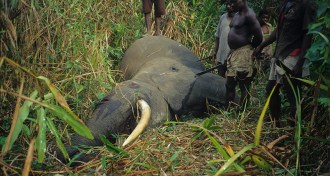 Genetics
GeneticsIvory DNA pinpoints poaching hot spots
Genetic analysis of ivory DNA reveals major poaching hot spots in Africa.
By Meghan Rosen -
 Animals
AnimalsWhen baboons travel, majority rules
GPS study suggests baboons use simple rules to resolve travel disputes without leaders.
By Bruce Bower -
 Anthropology
AnthropologyKennewick Man’s DNA links him to present-day Native Americans
Genetic analysis of Kennewick Man suggests that the ancient Pacific Northwest man was most closely related to modern Native Americans, not Polynesians.
By Bruce Bower -
 Health & Medicine
Health & MedicineCurtailing calories on a schedule yields health benefits
Eating an extreme low-calorie diet that mimics fasting just a few consecutive days a month may yield a bounty of health benefits, research suggests.
-
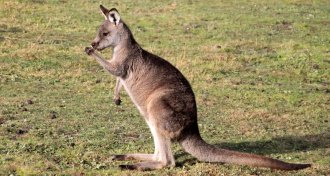 Animals
AnimalsKangaroos are lefties
Scientists find evidence of handedness in marsupials that walk on two, but not four, legs.
-
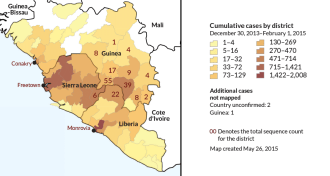 Genetics
GeneticsEbola continues to shift, but grows no more fatal
In the West African epidemic, Ebola evolved and spread quickly, but the virus is not becoming deadlier over time.
-
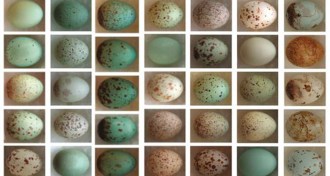 Animals
AnimalsUnpredictable egg scramble throws off parasitic parents
Eggs of some species of warbler and weaver birds appear to have individual signatures, which can help distinguish them from the eggs of parasitic cuckoos.
-
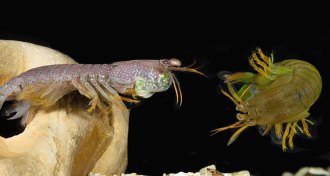 Animals
AnimalsHow mantis shrimps spar
In ritualized combat between deadly mantis shrimp, blows count but don’t kill.
By Susan Milius -
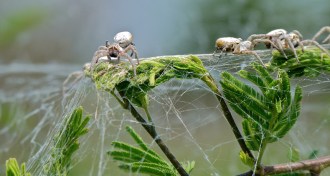 Animals
AnimalsOne bold, misinformed spider slows a colony’s ability to learn
Incorrect ideas prove more dangerous in bold velvet spiders than in shyer ones.
By Susan Milius